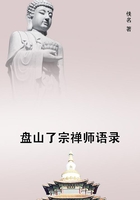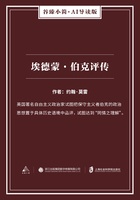A late uncle of nine, the Rev Thomas Spencer, for some twenty years incumbent of Hinton Charterhouse, near Bath, no sooner entered on his parish duties than he proved himself anxious for the welfare of the poor, by establishing a school, a library, a clothing club and land-allotments, besides building some model cottages. Moreover, up to 1833 he was a pauper's friend -- always for the pauper against the overseer. There presently came, however, the debates on the Poor Law, which impressed him with the evils of the system then in force. Though an ardent philanthropist he was not a timid sentimentalist. The result was that, immediately the new Poor Law was passed, he proceeded to carry out its provisions in his parish. Almost universal opposition was encountered by him: not the poor only being his opponents, but even the farmers on whom came the burden of heavy poor-rates. For, strange to say, their interests had become apparently identified with the maintenance of this system which taxed them so largely. The explanation is that there had grown up the practice of paying out of the rates a part of the wages of each farm-servant -- "make-wages," as the sum was called. And though the farmers contributed most of the fund from which "make-wages" were paid, yet, since all other ratepayers contributed, the farmers seemed to gain by the arrangement. My uncle, however, not easily deterred, faced all this opposition and enforced the law. The result was that in two years the rates were reduced from *700 a year to *200 a year; while the condition of the parish was greatly improved. "Those who had hitherto loitered at the corners of the streets, or at the doors of the beer-shops, had something else to do, and one after another they obtained employment;" so that out of a population of 800, only 15had to be sent as incapable paupers to the Bath Union (when that was formed), in place of the 100 who received out-door relief a short time before. If it be said that the *20 telescope which, a few years after, his parishioners presented to my uncle, marked only the gratitude of the ratepayers; then my reply is the fact that when, some years later still, having killed himself by overwork in pursuit of popular welfare, he was taken to Hinton to be buried, the procession which followed him to the grave included not the well-to-do only but the poor.
Several motives have prompted this brief narrative. One is the wish to prove that sympathy with the people and self-sacrificing efforts on their behalf, do not necessarily imply approval of gratuitous aids. Another is the desire to show that benefit may result, not from multiplication of artificial appliances to mitigate distress, but, contrariwise, from diminution of them. And a further purpose I have in view is that of preparing the way for an analogy.
Under another form and in a different sphere, we are now yearly extending a system which is identical in nature with the system of "make-wages" under the old Poor Law. Little as politicians recognize the fact, it is nevertheless demonstrable that these various public appliances for working-class comfort, which they are supplying at the cost of ratepayers, are intrinsically of the same nature as those which, in past times, treated the farmer's man as half-labourer and half-pauper. In either case the worker receives in return for what he does, money wherewith to buy certain of the things he wants; while, to procure the rest of them for him, money is furnished out of a common fund raised by taxes. What matters it whether the things supplied by ratepayers for nothing, instead of by the employer in payment, are of this kind or that kind? The principle is the same. For sums received let us substitute the commodities and benefits purchased; and then see how the matter stands. In old Poor-Law times, the farmer gave for work done the equivalent, say of house-rent, bread, clothes, and fire; while the ratepayers practically supplied the man and his family with their shoes, tea, sugar, candles, a little bacon, etc. The division is, of course, arbitrary; but unquestionably the farmer and the ratepayers furnished these things between them. At the present time the artisan receives from his employer in wages, the equivalent of the consumable commodities he wants; while from the public comes satisfaction for others of his needs and desires. At the cost of ratepayers he has in some cases, and will presently have in more, a house at less than its commercial value; for of course when, as in Liverpool, a municipality spends nearly *200,000 in pulling down and reconstructing low-class dwellings, and is about to spend as much again, the implication is that in some way the ratepayers supply the poor with more accommodation than the rents they pay would otherwise have brought. The artisan further receives from them, in schooling for his children, much more than he pays for; and there is every probability that he will presently receive it from them gratis. The ratepayers also satisfy what desire he may have for books and newspapers, and comfortable places to read them in. In some cases too, as in Manchester, gymnasia for his children of both sexes, as well as recreation grounds, are provided. That is to say, he obtains from a fund raised by local taxes, certain benefits beyond those which the sum received for his labour enables him to purchase. The sole difference, then, between this system and the old system of "make-wages," is between the kinds of satisfactions obtained; and this difference does not in the least affect the nature of the arrangement.















